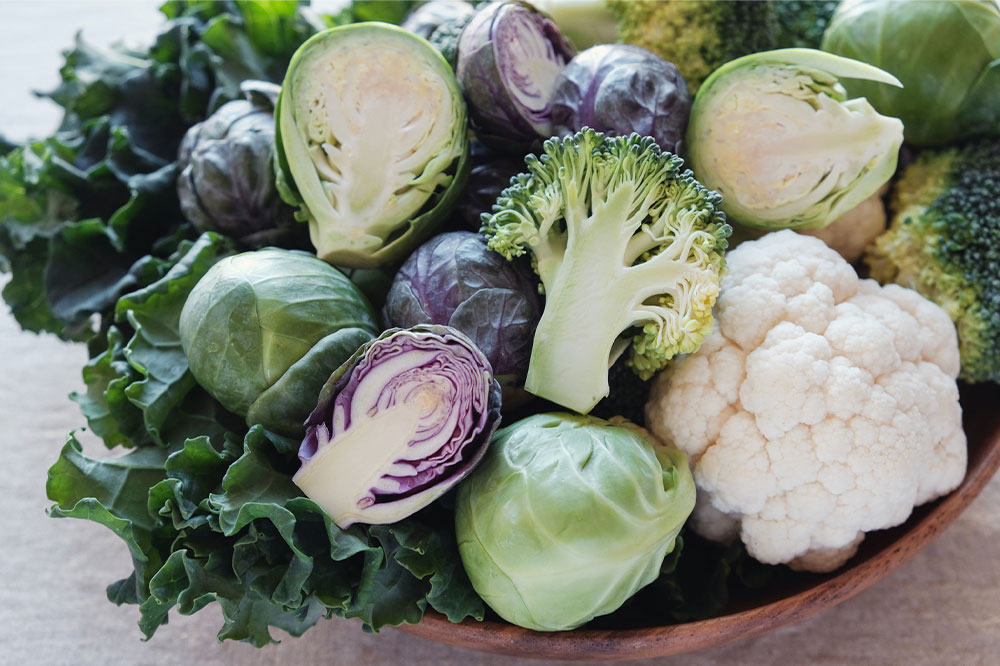6 best foods for combating lung cancer

Nutrition has a direct and significant impact on physical health and well-being. A balanced meal and an active lifestyle can prevent many illnesses, including heart problems, diabetes, and severe disorders like lung cancer. Some foods can also help lower cancer risk. For example, a well-balanced meal may help patients manage their condition better, maintain strength, and recover faster. Here are some of the most effective meals for preventing and combating lung cancer.
Best foods to fight lung cancer
Cruciferous vegetables
Sulforaphane, a sulfur-rich chemical found in broccoli, cauliflower, cabbage, bok choy, and Brussels sprouts, is one of the most effective cancer-fighting foods. These superfoods also contain indole-3-carbinol, which can help repair cell damage caused by carcinogen contact, thereby preventing cancer cell growth. Also, vegetables are a good source of vitamins, minerals, antioxidants, and fiber. These antioxidants can protect the body from free radical damage. They also contain a lot of fiber, which helps prevent constipation and other health problems.
Fatty fish
These fish are abundant in omega-3 fatty acids, which have many health benefits for the body as a whole and are helpful in the treatment and prevention of cancer. They also contain various other vitamins, minerals, and antioxidants that may aid in the fight against cancerous cells. They contain vitamin D, which helps prevent lung cancer development. Vitamin D is found in fatty fish such as mackerel and salmon. Consuming more foods rich in vitamin D is necessary to prevent deficiency in the body because it is the hardest of all the vitamins to absorb through food.
Turmeric
Turmeric, a key ingredient in dishes like curry, contains curcumin. Several studies have shown that curcumin inhibits the spread of lung cancer cells. It promotes cell death in cancer cells and has antioxidant, anti-inflammatory, and immune-stimulating properties. In addition, curcumin may increase the sensitivity of tumors to the effects of chemotherapy and radiation therapy, thereby speeding up the recovery process. Turmeric can be consumed in lattes, with milk, or added to curries with other foods.
Berries
Berries such as blueberries, blackberries, raspberries, and cranberries are high in anthocyanidins. This substance found in berries slows the growth of tumors, restricts the ability of tumors to develop new blood vessels, and induces cell death (apoptosis) in cancer cells. Moreover, it helps prevent blood clot development in cancer patients. It’s a wonderful fruit that can be used in smoothies, as a snack, or as a healthy dessert.
Beans
Beans are high in fiber and other nutrients to help prevent cancer. It can help with blood pressure control and heart health. They also contain antioxidants, which can aid in the prevention of cancer cell growth. Beans contain few calories, which can help one maintain an active lifestyle while undergoing treatment and manage body mass. Many different types of beans exist, so people can include them in their regular meal plans to improve their health.
Orange fruits and vegetables
Many fruits and vegetables contain beta-cryptoxanthin, a naturally occurring carotenoid component with anti-cancer properties, such as oranges, tangerines, peaches, papayas, red bell peppers, and carrots. High levels of beta-cryptoxanthin have been shown in studies to reduce the risk of lung cancer development. Fresh fruits are highly antioxidant and an excellent way to fight lung cancer. They are also high in fiber, which can help clean the blood and prevent cancer from spreading.

